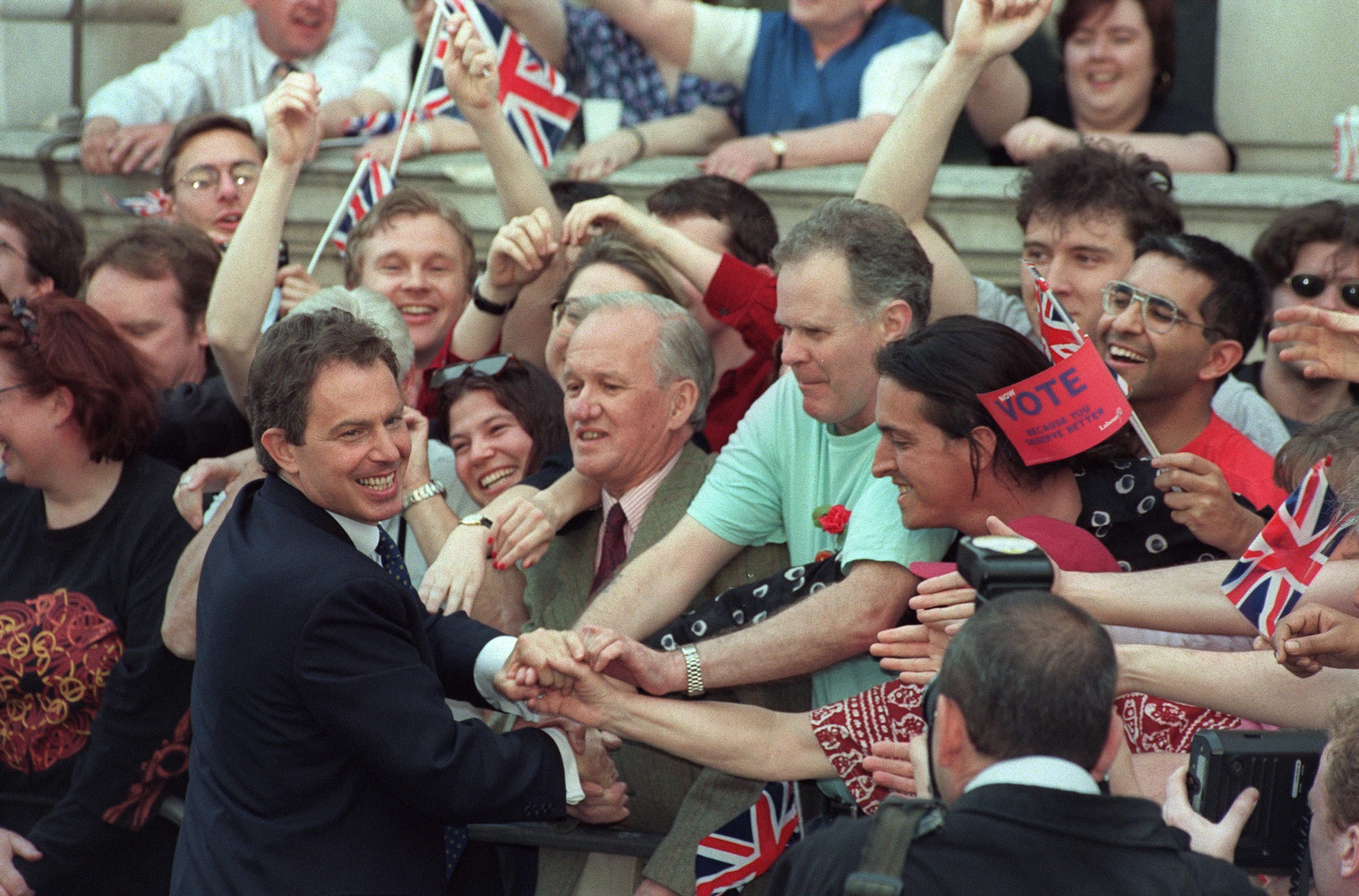
Everyone will have a favourite moment from the night Labour achieved the most handsome victory in the party’s history. For those following the story on television, it would be hard to beat the announcement at Enfield Southgate, when the returning officer announced that the youthful and charming Stephen Twigg had defeated Michael Portillo. As the camera focused on Twigg’s face, his rolling eyes reflected back our collective disbelief at the scale of the triumph. Portillo, a politician to be remembered only for his graceless attempts to dress his political ambitions in the uniform of the SAS and the robes of monarchy, makes flesh the nation’s sense that it could not bear a younger, cruder version of Margaret Thatcher. In choosing Major in 1992, the electorate believed it had brought “a nation at ease with itself”. Instead, we got a prime minister with a tourniquet round his neck; we wish him many happy afternoons watching cricket.
Later on the morning of 2 May, Tony Blair arrived in London to speak beneath an illuminated backdrop proclaiming: new Labour, new government. The first light was creeping up the river from Docklands: “It is a new dawn, is it not,” he murmured, as if the Almighty too had cast a vote. The Labour leader then chose his words with care. Having won as new Labour, he would govern as new Labour. The size of the victory imposed a special responsibility on the winning party to have regard for the whole nation’s interests. It was a time to heal divisions. To believe in the possibility of a dynamic economy dominated by the private sector, but a set of interventions by government to attack social exclusion, injustice and widening inequality. It was wonderful beyond words to wake up two hours later and hear David Blunkett on the radio being asked exactly when and how he intends to implement Labour’s promises on education. To listen to a government minister in whose values you have total confidence. To know that we are talking no longer about the well-being only of an elite. To sense that having won, Labour has individuals of the highest quality to turn vision into reality.
The achievement of Blair and those around him has been astonishing. He has turned the Labour Party into a disciplined, motivated, value-driven party capable of asking itself the hardest questions about the relationship between means and ends. He has laid the foundations for a long term of office, in which we can transform education, re-order the welfare state, restore Britain’s voice and energy in global affairs and unbundle the terrible, tight knot of our over-centralised, secretive, culturally constipated state. To put behind us the crisis of self-confidence which gave us Margaret Thatcher. Britain turned to Thatcher because it wanted to be beaten out of economic suicide. We have turned to Blair, because we now believe we can do it for ourselves; the greatest leaders trust the people. The politics inclusiveness, for which Blair has taken great risks, must now go further: the new government must place reasoned trust in the upwardly devolved institutions of Europe, in our own nations, in our civil society, in local government, in trade unions and in business. We know that Blair can be tough if the response is unreasonable or sectarian, but now is the time to test that trust and above all to avoid any temptation to seal the ears of government against the vital currents of imagination and debate.
In naming his cabinet, Blair has made an honest start. He had promised to stick with the rules and was right to do so. Even some of the older members have not had their chance to prove themselves as minister: now is their chance. We are delighted to see the radical Frank Field at social security. Meanwhile, Blair has an enormous parliamentary party from which to spot talent. He will need to reform the Commons and its ways if this new talent (there is plenty on the Tory and Lib Dem benches too) is not to fester and rot. The Liberal Democrats have earned a special relationship with the new government, particularly on constitutional issues, and even at this moment of triumph, no one should forget that the landslide has yet again put a minority party in party in power: Labour got 44.4 per cent of the vote and 65.2 per cent of the seats.
The New Statesman has not been comfortable with some of Labour’s bulldog imagery in this campaign, but perhaps we can agree that it is a line from Kipling that captures the kind of dawn this is. One that comes up like thunder.
This article is part of the New Statesman’s 1997 election archive, New Dawn. Click here for the full collection.






